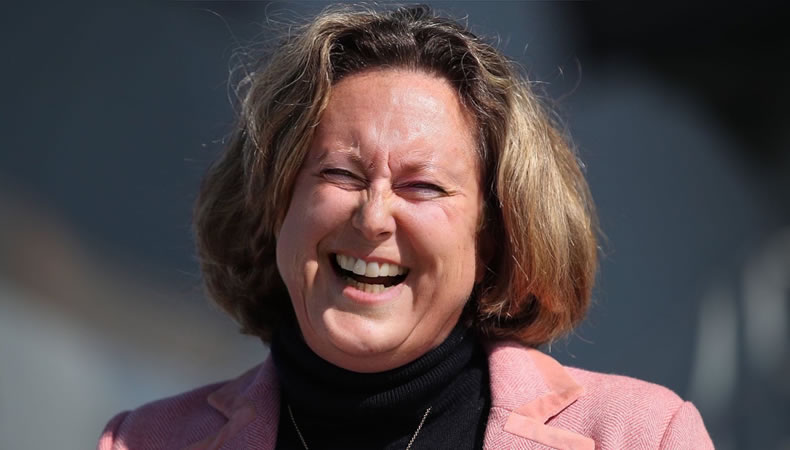UK announces bold trade agreement with Gulf countries


The GCC bloc’s demand for international goods and services is anticipated to increase significantly to £800 billion by 2035, a 35 percent increase, equivalent to the UK’s seventh largest export market, creating enormous new potential for UK businesses. A free trade agreement would also allow for more Gulf investment, supporting and generating jobs across the nation.
The Secretary of State will meet with the GCC Secretary General, Dr. Nayef Falah M. Al-Hajraf, and her counterparts from all six GCC countries during a trip to Riyadh, Saudi Arabia, to begin negotiations that are anticipated to result in a trade agreement that will boost the UK economy by £1.6 billion annually.
It is the fourth significant round of Free Trade Agreement (FTA) negotiations that the Trade Secretary has begun this year, following trips to start discussions in India in January, Canada in March, and Mexico last month.
Related Posts
Anne-Marie Trevelyan, the UK’s trade secretary said,”Today marks the next significant milestone in our 5-star year of trade as we step up the UK’s close relationship with the Gulf.”
“Our current trading relationship was worth £33.1 billion in the last year alone. From our fantastic British food and drink to our outstanding financial services, I’m excited to open up new markets for UK businesses large and small, and supporting the more than ten thousand SMEs already exporting to the region,” she added.
Deal between the UK and GCC would greatly help British farmers and producers as the Gulf region is heavily reliant on imported food. A deal could dramatically lower or erase tariffs on UK food and drink exports, which were worth £625 million to GCC nations last year.
Cereals now have a tariff of up to 25%; chocolate has a tariff of up to 15%; baked goods have a tariff of up to 12%; sweet biscuits have a tariff of up to 10%; and smoked salmon currently has a tariff of up to 5%.
This agreement would open up even more potential for investment between the UK and the GCC nations, which have already spent about £30 billion in each other’s economy.
The East Midlands, West Midlands, North East, and Yorkshire and the Humber will be in line for the greatest proportional gains when the ink dries on a new deal, according to analysis. Gulf investments supported over 25,000 UK jobs in 2019 – a number that tripled over the previous decade. The agreement is expected to increase Scotland, Wales, and Northern Ireland’s economies by a combined amount of about £500 million.
According to Stephen Phipson, CEO of the manufacturers’ organisation Make UK,”We welcome the launch of free trade negotiations with the Gulf Co-Operation Council, strengthening trade opportunities which will ensure that British manufacturing benefits from future positive flows of goods and services into the Gulf region.”
“It is also extremely helpful that the UK and GCC are committed to work towards seeking the opportunities from ‘green innovation’, which will bring significant opportunities for Britain’s innovative renewable energy companies which are already leading the way in this area of global concern. We look forward to working with government to make sure manufacturers large and small are able to benefit from the business possibilities this deal will open up,” he added.
In 2020, 10,700 SMEs from every country and region in the UK sold goods to the GCC, with SMEs making up more than 85% of all UK exporters of goods to Qatar, Saudi Arabia, and the UAE.
The UK would be able to capitalise on its assets as a manufacturing powerhouse and a global leader in technology, cyber, life sciences, creative industries, education, artificial intelligence (AI), financial services, and renewable energy if there was a strong trading connection.
Businesses in the UK operating in these sectors will assist GCC nations as they diversify their economies and rely less on oil and more on other industries. For instance, the UAE has set a goal to produce 50% of its electricity from renewable sources by 2050. Currently, there are up to 15% tariffs on the export of UK wind turbine parts.
The GCC is comparable to the seventh-largest export market for the UK, with £33.1 billion in total commerce in 2021. Only the US and China purchase more goods and services from the UK.
According to government analysis, an agreement with the GCC is anticipated to boost trade by at least 16 percent, add at least £1.6 billion annually to the UK economy, and enhance wages for UK employees by at least £600 million. Over 25,000 jobs were supported by 600 GCC-owned companies in the UK in 2019, a number that had tripled over the preceding ten years.











